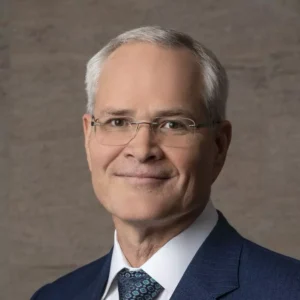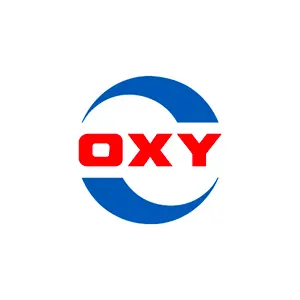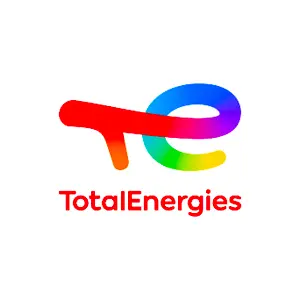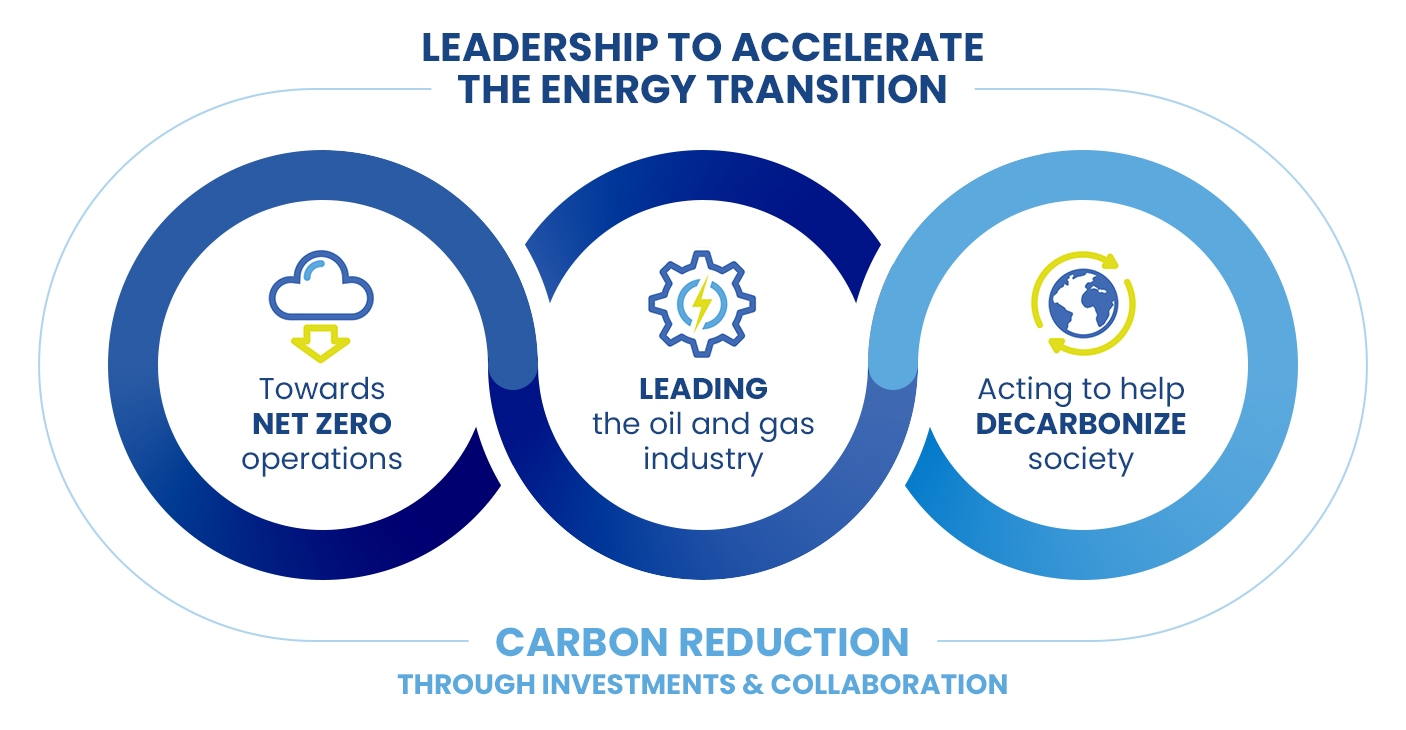The geopolitical disruptions of the war in Ukraine and continuing effects of the Covid pandemic have contributed to a global energy crisis that has shone a new light on the complexities of the energy transition. As CEOs of the OGCI member companies, we face the need to balance the demands of energy security, affordability and sustainability every day. We know that tackling the energy crisis does not change the fundamentals of the energy transition and the urgency of action to address climate change.
That is why, far from pulling back on our response to climate change, we have delivered important progress on the OGCI action plan this year, building on the three strategic pillars we identified in 2021.
- Driving towards net zero operations
- Leading the oil and gas industry
- Acting to help decarbonize society
We took significant steps towards each of these ambitions this year. There are four milestones we want to highlight:
We are making progress both on reducing greenhouse gas emissions in our own operations and helping to build the energy system of the future.
Five-year data1 shows an aggregate 40% reduction in member company absolute upstream methane emissions and an 18% reduction in absolute upstream carbon emissions (Scope 1). At the same time, we almost doubled our aggregate spending on low carbon solutions in 2021, compared to 2020. OGCI member companies have spent $40 billion on low carbon investment, and research and development over the past five years. Our collective work in OGCI – setting targets, prioritizing challenges and exchanging best practices to tackle them – supports individual member company efforts.
We have taken a major step forward in leading the industry in the key area of methane emissions.
In March this year we launched the Aiming for Zero Methane Emissions Initiative, to encourage industry players to take an all-in approach that treats methane emissions as seriously as the oil and gas industry already treats safety. We now have 17 signatories and 42 supporters, sharing our belief that virtually all methane emissions from the industry can and should be avoided.
We are moving ahead with actions to help decarbonize heavy industry and transportation.
In particular, we are collaborating with industry and government partners to realize the first carbon capture, utilization and storage (CCUS) hubs and start demonstrating the potential of CCUS for marine shipping.
We are celebrating the fifth anniversary of OGCI Climate Investments (CI)
Our first collective initiative to unlock finance for low carbon solutions. It has been an important year for CI, which has 29 portfolio companies to date. It is now expanding its reach to support later-stage companies as they scale their innovative decarbonization solutions, moving beyond the $1 billion-plus fund CI manages for OGCI.
You can read more about these milestones in this report. But OGCI is not just about milestones. It is also about supporting us, as CEOs, to engage more fully in the complex reality of the energy transition.
As part of that engagement, OGCI Executive Committee Chair, Bjørn-Otto Sverdrup, spoke at COP27 at the invitation of the Egyptian presidency. He discussed the actions oil and gas companies are taking to implement their climate plans while highlighting the need for urgency, closer collaboration within and outside the industry and greater transparency.
As we accelerate our efforts we would like to thank the many people and organizations that collaborate with us, actively engage with us and continually challenge us to do more to meet this pivotal moment in the world’s energy transition.

Bob Dudley
Chair, OGCI


Amin Nasser
Saudi Aramco


Bernard Looney
bp plc


Michael K. Wirth
Chevron Corporation


Dai Houliang
CNPC


Claudio Descalzi
Eni S.pA


Anders Opedal
Equinor ASA


Darren Woods
Exxon Mobil Corporation


Vicki Hollub
Occidental


Caio Paes de Andrade
Petróleo Brasileiro SA


Josu Jon Imaz
Repsol S.A.


Ben van Beurden
Shell plc


Patrick Pouyanné
TotalEnergies SE

